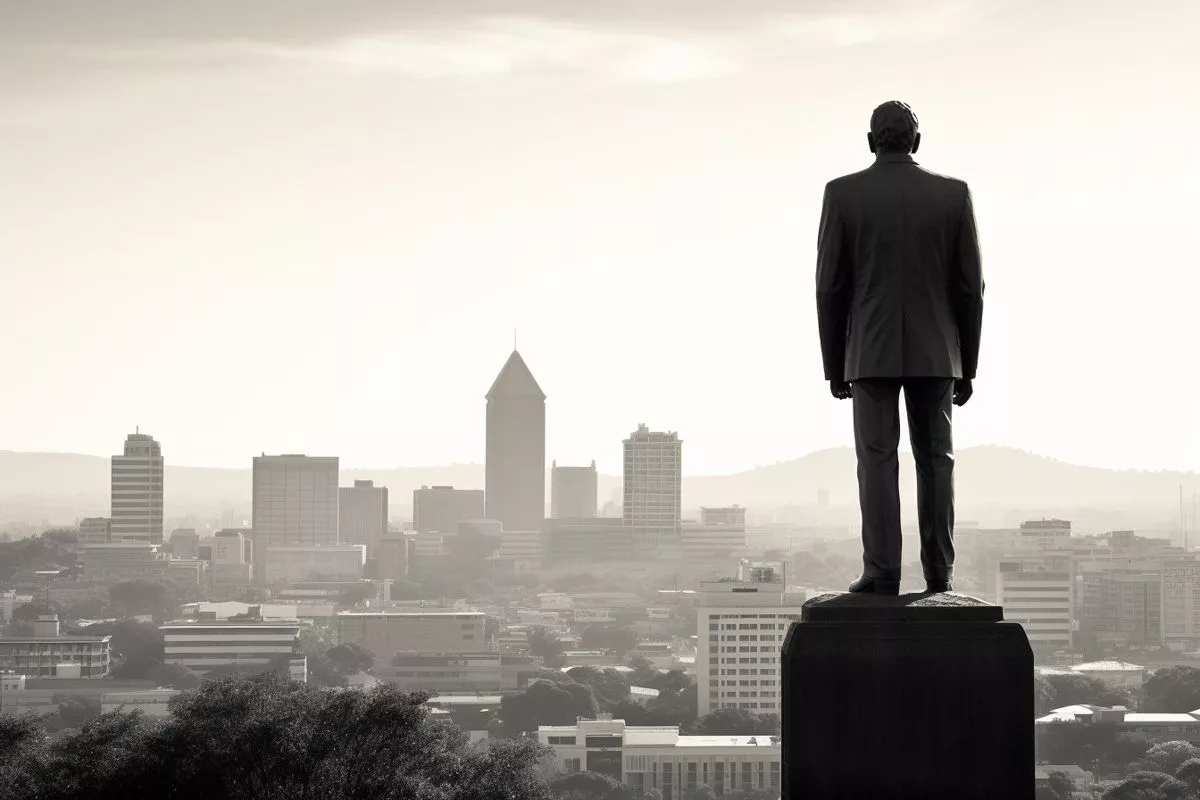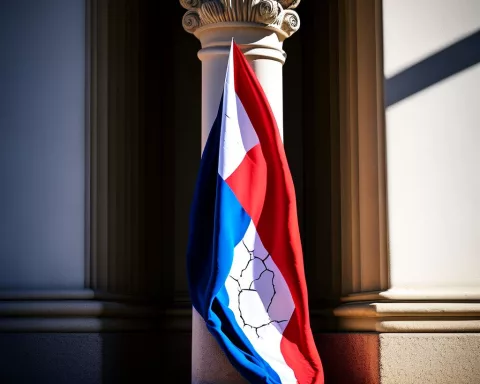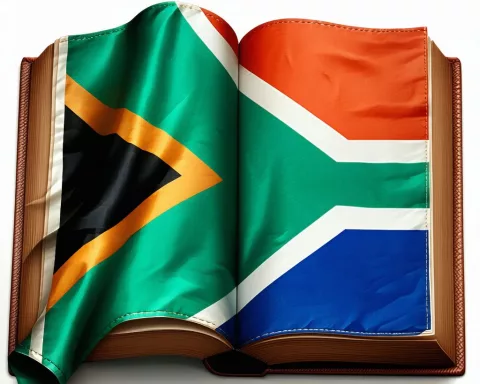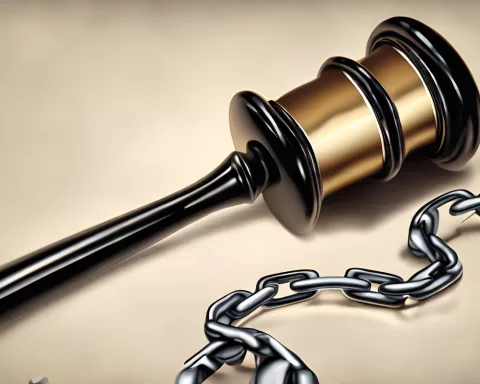Nelson Mandela’s legacy in South Africa includes his support for the Palestinian cause, which is still evident in the country’s support for the Palestinian state. This was highlighted during a commemoration of Mandela’s death anniversary, where Hamas officials and Palestinian representatives gathered to pay homage and emphasize the ongoing conflict in Gaza. Mandela’s grandson, Mandla Mandela, orchestrated the event and drew parallels between the struggle against apartheid in South Africa and the Palestinian cause. South Africa has supported the Palestinian cause by calling for the closure of the Israeli embassy and an investigation into Israel’s actions in Gaza.
What is Mandela’s legacy in relation to South Africa, Hamas, and Gaza?
Nelson Mandela viewed the struggle for a Palestinian state as one of his primary international causes, a sentiment echoed by his grandson, Mandla Mandela. South Africa has supported the Palestinian cause, including calling for the closure of the Israeli embassy and an investigation into Israel’s actions in Gaza. Mandela’s legacy endures in South Africa’s support for the Palestinian state.
Section 1: Commemorating Mandela, Emphasizing Gaza
Nelson Mandela’s grand statue at Union Buildings in Pretoria stands tall, observing the city’s bustling life – an everlasting reminder of South Africa’s first black president. Mandela’s death anniversary, a decade later, saw a gathering of senior Hamas officials and Mandela’s kin, aiming to honor his memory, as well as to emphasize the ongoing conflict in Gaza, an issue that Mandela held dear.
On this day, a moving tableau played out at the base of the imposing sculpture. Palestinians stood shoulder to shoulder with representatives from Hamas, paying homage with a wreath. This delegation included figures like Basem Naim, ex-Hamas health minister in Gaza, and Khaled Qaddoumi, the faction’s emissary in Iran.
The orchestrator behind this historic gathering was Mandla Mandela, a national assembly member and Mandela’s grandson. He masterminded a two-day symposium on the Palestinian-Israeli conflict, climaxing with the wreath-laying ceremony. The conference provided a stage for Palestinians to articulate their frontline experiences.
Section 2: Echoes of Past Struggles in Current Conflicts
Mandla Mandela, reflecting on the conference and the anniversary, opened up about the profound influence of these interactions to the national broadcaster SABC. He highlighted how they offered a direct glimpse into the daily horrors faced in Gaza, resonating with South Africa’s painful memories of battling one of the most savage apartheid regimes.
The connection between the South African fight against apartheid and the Palestinian cause was a legacy of Nelson Mandela. He viewed the struggle for a Palestinian state as one of his primary international causes, a sentiment echoed by Mandla Mandela as “the great moral issue of our time.”
The current political climate in South Africa still resonates with Mandela’s principles. The African National Congress, which counts Mandla Mandela amongst its ranks, supported a national assembly resolution last month advocating for the Israeli embassy’s closure and a halt in diplomatic relations as a protest against the war. South Africa has also formally requested the International Criminal Court to probe what President Cyril Ramaphosa has termed as Israel’s “war crimes” in Gaza.
Section 3: The Toll of Conflict and Diplomatic Tensions
The statistics emerging from opposing sides of the conflict present a bleak image of the war. According to Israeli sources, 1,200 individuals lost their lives when Hamas militants infiltrated the border on October 7. Conversely, Hamas reports nearly 16,000 fatalities resulting from Israel’s military onslaught on Gaza since then.
The commemoration concluded without an official representative from Israel, a nation that has consistently dismissed any parallels between its conflict and apartheid. In 2013, they abstained from sending a high-ranking official to Mandela’s funeral, and their current absence only further deepens the growing divide between the countries.
Section 4: Mandela’s Legacy and Gaza’s Shadow
The specter of Gaza casts a long shadow over South Africa, mirrored in the actions of its government and its citizens. Nelson Mandela’s legacy endures not just in statues and anniversaries, but also in the causes he advocated. The resonance of his voice persists in this ongoing international issue, with South Africa staunchly supporting the Palestinian state, just as Mandela himself did.
1. What is Nelson Mandela’s legacy in relation to South Africa, Hamas, and Gaza?
Nelson Mandela viewed the struggle for a Palestinian state as one of his primary international causes, a sentiment echoed by his grandson, Mandla Mandela. South Africa has supported the Palestinian cause, including calling for the closure of the Israeli embassy and an investigation into Israel’s actions in Gaza. Mandela’s legacy endures in South Africa’s support for the Palestinian state.
2. What was the commemoration of Mandela’s death anniversary like in relation to Gaza?
The commemoration saw a gathering of senior Hamas officials and Mandela’s kin, aiming to honor his memory, as well as to emphasize the ongoing conflict in Gaza, an issue that Mandela held dear. Palestinians stood shoulder to shoulder with representatives from Hamas, paying homage with a wreath. Mandla Mandela orchestrated the event and drew parallels between the struggle against apartheid in South Africa and the Palestinian cause.
3. What is the connection between the South African fight against apartheid and the Palestinian cause?
The connection between the South African fight against apartheid and the Palestinian cause was a legacy of Nelson Mandela. He viewed the struggle for a Palestinian state as one of his primary international causes, a sentiment echoed by Mandla Mandela as “the great moral issue of our time.”
4. What actions has South Africa taken to support the Palestinian cause?
South Africa has supported the Palestinian cause by calling for the closure of the Israeli embassy and an investigation into Israel’s actions in Gaza. The African National Congress, which counts Mandla Mandela amongst its ranks, supported a national assembly resolution last month advocating for the Israeli embassy’s closure and a halt in diplomatic relations as a protest against the war. South Africa has also formally requested the International Criminal Court to probe what President Cyril Ramaphosa has termed as Israel’s “war crimes” in Gaza.
5. What are the statistics of the Gaza conflict?
According to Israeli sources, 1,200 individuals lost their lives when Hamas militants infiltrated the border on October 7. Conversely, Hamas reports nearly 16,000 fatalities resulting from Israel’s military onslaught on Gaza since then.
6. How has Israel responded to the commemoration of Mandela’s death anniversary?
The commemoration concluded without an official representative from Israel, a nation that has consistently dismissed any parallels between its conflict and apartheid. In 2013, they abstained from sending a high-ranking official to Mandela’s funeral, and their current absence only further deepens the growing divide between the countries.













